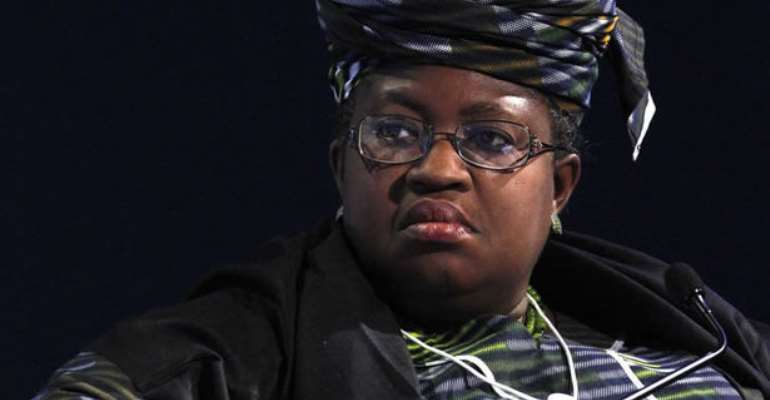Exciting Transformation Taking Place In Africa – Okonjo – Iweala

Okonjo-Iweala stated this Wednesday in a paper she presented while addressing the American Think Tank organisation, the Atlantic Council, in the United States.
The minister who was a guest of the organisation spoke on Nigeria in the first of a series of talks on 'New Africa', organised by Atlantic Council in partnership with Thomson-Reuters.
In the paper titled, Vision for Sustained Prosperity in Nigeria, the Minister said an exciting transformation is taking place on the continent of Africa.
According to her, 'In the decades of the 1980s and the 90s, we saw an Africa that was heavily indebted with an average debt-to-GDP ratio of 75 percent; an Africa plagued with slow economic growth of about 2 percent annually, hyperinflation - with inflation rates as high as 48 percent on occasion, and rampant poverty; an Africa troubled by civil wars and political strife, and an Africa in desperate need of donor aid and assistance.
'Fast-forward two decades and the story is remarkably different. We see now, an Africa whose economy is growing faster than most economies in the world with better than 5 percent annual growth in GDP. We see an Africa with low debt, averaging about 32 percent of GDP (which is certainly much lower than those of developed countries including the US and several in Europe), low inflation - at single digit on average, and a middle class that has nearly tripled in size - from about 126 million people (or 27 percent of total population) in 1980 to nearly 350 million people (or 34 percent of population) by 2010, according to the African development Bank.
'We see an Africa that is obviously enjoying a peace dividend and better governance with democracy now entrenched in most countries. We see an Africa that is now being courted by foreign investors with FDI increasing from $9 billion in 2000 to about $50 billion by 2012. '
The minister said Africa has come a long way but it has gone from a being lost cause to an almost hot prospect.
'Now you may think this sounds strange when all everyone is talking about is the Ebola crisis and flashpoints of insurgency like the Boko Haram in Nigeria and El Shabab in Kenya. You might also think it sounds strange with conflict in CAR and South Sudan.
'Yes, these are certainly challenges. Ebola could be devastating if not decisively dealt with as a global challenge. The IMF estimates 1.5 to 3.5 percent off growth rates of Liberia, Guinea, and Sierra Leone. Nigeria and Senegal are relatively unscathed. But if not stopped, Ebola will travel as we have seen and could cause considerable harm.
'But Ebola is not a problem that is permanent, it is a problem that can be managed so don't expect it to reverse Africa's growth trajectory. Boko Haram and El-Shabab are real problems but again the push back is beginning. But what is interesting is that the existence of these problems has not managed to turn back the tide of a better performing Africa,' she said.
Okonjo - Iweala maintained that Nigeria is a classic example of this Africa Rising phenomenon, and perhaps one of its most successful stories.
According to her, 'The return to democratic rule at the turn of the millennium brought with it better macroeconomic management and a series of reforms that unleashed economic growth, with GDP growing at an average 7 percent per annum over the last decade driven by the strong growth in the non-oil sector, particularly telecommunications, manufacturing, construction, wholesale and retail, to name a few.
“The recent GDP rebasing exercise revealed that Nigeria is now the largest economy in Africa and the 26th largest in the world, with a GDP of $510 billion, and perhaps the most diverse economy on the continent. Only 15 percent of GDP is from resources (mainly oil and gas) while the services sector accounts for 51 percent of the GDP, agriculture - 22 percent, telecoms - 8.7 percent, manufacturing - 6.7 percent, and our film industry (known as Nollywood) also contributing 1.2 percent.”
'Nigeria is also Africa's largest population with about 170 million people - or nearly 20 percent of the continent's population, and also its largest market. A recent report by the McKinsey Global Institute reveals that there are almost 40 million Nigerians in the consuming class households - which are households with incomes exceeding $7,500 per year.'
Describing Nigeria as an economic powerhouse which deserves to be a member of clubs of its peers like the G-20, the minister lamented that Nigeria is underrated with its sore points magnified beyond belief particularly in the Western media.
“My country receives little or no praise even when things are done right, but is left battling with the prejudice of a country where nothing works,' she said.
